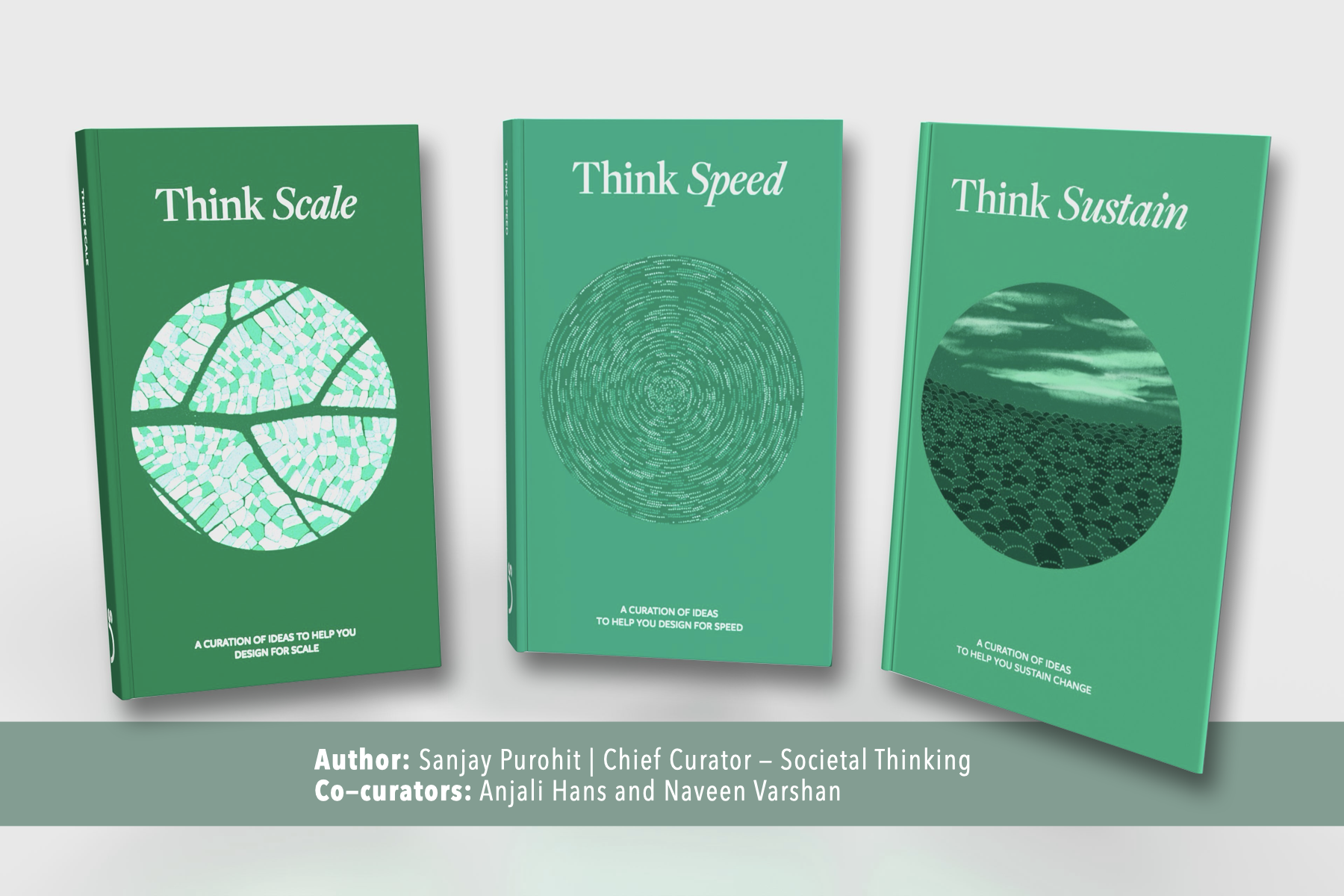Six years ago, when we embarked on the journey of helping build platforms for the society, one of the biggest concerns we heard was “Platforms = concentration of power in the hands of the platform owner”. After all, people were seeing the mighty force that tech superpowers – Apple, Microsoft, Google, Amazon and Facebook wielded, not just in their own work, but also in how they could sway opinions, change realities and make or break markets.
However, when a platform is built for society, people put their trust in it and expect it to be inclusive, generative and life-changing. When such a platform goes rogue, it can cause serious repercussions. This meant that we had to define the right guideposts to ensure that a platform built for the society, does just that – works for and in the service of the society. We call these guideposts Societal Thinking Core Values. These values guide us when we reach a fork in our path and help us to take the one that is right for society at large.
Central to these Core Values is the idea of moving towards a system that restores agency, dignity and choice of people. The work of our ecosystem brings alive these Core Values in many ways –
- Restore agency: Large-scale change happens when every actor of society takes certain actions because they want to, they see value in taking them and can do so easily, affordably, and fearlessly. A belief in this value changes the way entrepreneurs see their role in solving the problem – instead of solving the problems themselves, they start thinking about how they can work towards removing barriers for other people to solve problems by themselves. It’s a choice between ‘Should I create lesson plans in multiple languages or should I build a tool that allows easy creation of lesson plans by teachers for the languages they use?’ Restoring the agency of diverse actors can decentralise power.
- Catalyse interactions: At scale, it’s not about one solution or one actor. What works at scale is a medley of diverse actors (community, State, civil society, and markets) coming together to make the change scale and sustain. A good Societal Platform makes interactions between these actors easy, seamless and efficient in a way where no one actor needs to be the coordinator in the middle or holds a disproportionate amount of power. If these diverse actors can discover and work with each other by themselves, the number of interactions increases manifold. For example: Project ECHO has many doctors, and health workers on their platform. If ECHO facilitates these interactions, the topics and number of interactions may be limited. But, if doctors and health workers can interact with each other seamlessly, they may discover answers to many of their questions and co-create many new pathways. Thus, making knowledge move faster.
- Open value creation: In today’s fast-changing world, building and using open technology/data/knowledge is a faster way to build. Openness comes from a deep belief that a better world requires multiple people bringing diverse contexts to create relevant solutions. So, a platform for society, inherently, has to empower every actor to freely create and share their slice of the work and at the same time be able to use the platform to generate value for themselves. For example: a village teacher who has found a great way to teach counting is able to easily create and share her work on DIKSHA alongside well-known education experts and both of these are visible to a parent looking for ways to make their child learn, say, counting.
- Build public goods: A few decades back, roads, bridges and other physical infrastructure were the veins of a growing economy. Nations built these public goods in the hope that they will lead to more movement, more development and more innovation. In the digital age, the equivalent to these are the digital rails of Identification, payments, certification etc. that can unlock massive economic and social value for the entire population. These digital public goods made it easier not just for governments, but civil society and markets to grow exponentially. For those who want to solve problems at scale, building public goods is a way to make all scarce assets such as knowledge, processes, data, and technology open and available to all. For example: Today, because of UPI, India’s digital payments are higher than the US, UK, France and Germany combined – remarkable for a country that used cash for 90% of transactions a few years ago.
- Empower with data: As they say, data is the new oil. It’s a tool that has created unlimited riches for some of the biggest tech giants of today. Can data reap the same benefits for all? It can, if it’s used not as a control mechanism, but as a tool to empower everyone. For example: Reap Benefit is empowering a brigade of problem-solving youth, or as they call them, ‘Solve Ninjas’ who drive change in their local communities by solving everyday civic and environmental issues. One of the biggest tools in the hands of these Solve Ninjas is access to data that empowers them to see, sense and then solve the problems around them. When data empowers, everyone can be a changemaker and solving becomes exponential.
Societal Thinking Core Values are the rubric we hold ourselves accountable to – individually, organisationally and collectively. As Robert Frost says ‘that makes (made) all the difference’.
“ Two roads diverged in a wood, and I—
I took the one less travelled by,
And that has made all the difference.”
 Back
Back


